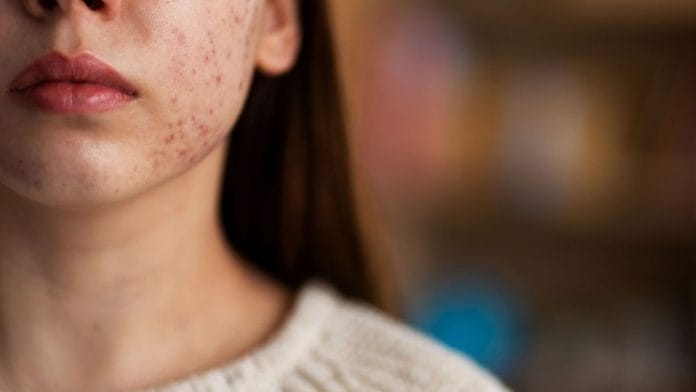Rosacea is more than just a skin condition—it is a silent struggle endured by millions worldwide. As a dermatologist who has walked beside countless patients through their journeys, I have seen how this chronic inflammation of the skin touches not just the face but also the spirit.
The persistent redness, or sudden one with visible blood vessels, and acne-like bumps can weigh heavily, often stealing confidence and comfort in one’s own skin. But rosacea, though challenging, is not undefeatable.
What really causes Rosacea?
The exact roots of rosacea remain a mystery, but science points to a blend of genetics, environmental influences, and an over-sensitive skin barrier. As I often tell my patients: “The earlier you understand rosacea, the better you can tame it.”
Some of the main factors linked to rosacea include:
• Genetics—a family legacy often runs deep in rosacea cases.
•. Immune overdrive—an exaggerated immune response fuels inflammation, leaving the skin flushed.
• Demodex mites—these tiny, natural inhabitants of our skin are found in greater numbers in rosacea patients and may cause irritation. So a regular deworming schedule helps.
• Blood vessel sensitivity—fragile or overactive vessels often lead to the hallmark persistent redness
Also read: Skin cancer is no more an ‘old person’s disease’
Triggers that fan the flames
While causes lie beneath the surface, triggers often dictate how rosacea shows up day to day. Common flare-up culprits include:
• Heat from weather or exercise, or smoke. Both smoke due to smoking or pollution can trigger, yes
• Spicy delicacies that ignite the skin as much as the palate
• Alcohol, especially red wine, is known for sparking unwanted flushes
• Skincare products heavy with alcohol, fragrance, or harsh exfoliants
• Stress, an often underestimated yet powerful trigger
I always encourage patients to keep a simple diary. Noting what stirs flare-ups helps connect the dots and creates a powerful tool for prevention. It is an individual pattern for all.
Treatment pathways
Managing rosacea is rarely about one single solution—it’s about combining medical care with thoughtful lifestyle changes.
Topical treatments
• Metronidazole—a trusted anti-inflammatory cream/gel for calming mild cases
• Azelaic Acid—reduces bumps and redness gently
• Ivermectin—targets both inflammation and Demodex mites effectively
Oral medications
• Tetracyclines (like Doxycycline)—for moderate rosacea, these help control inflammation
• Isotretinoin—reserved for severe, resistant cases but powerful when nothing else works
Laser and light therapies
For those troubled by persistent redness and visible vessels:
• Pulsed Dye Laser (PDL) closes off dilated vessels
• Intense Pulsed Light (IPL) improves overall tone and glow, and if done scientifically, helps in reducing dilated vessels. If you have seen, most British nationals have rosacea, and hence, interestingly UK is full of these IPL, also called Photofacial spots at various places as it works!
Lifestyle and skincare essentials
Small daily rituals can make a world of difference:
• Choose gentle cleansers and skip harsh scrubs
My favourite home remedy has been to “apply chilled curd on the rosacea 3-4 days a week” and wash off after a few minutes. This helps a lot, and also rub ice on the rosacea patch 4-5 times a week.
• Keep skin hydrated and nourished
• Wear sunscreen daily—sunlight is a well-known enemy of rosacea
• Lean into an anti-inflammatory diet with fruits, greens, and omega-3-rich foods
No two rosacea stories are the same. While there may be no “cure,” there are many doors that open toward relief, control, and renewed confidence. What matters most is a treatment plan tailored to you—one that considers not just your skin but your lifestyle, triggers, and emotional well-being.
If you find yourself struggling with redness, bumps, or unexplained flushing, don’t hesitate to reach out to a dermatologist. Knowledge, compassion, and expert guidance can light the way toward calm, radiant skin. Remember: Your skin is a story, and rosacea is just one chapter—not the whole book. Your friendly skincare truth-teller.
Dr Deepali Bhardwaj is a Consultant Dermatologist, Max Hospital, Saket. She is also an anti-allergy specialist, laser surgeon and internationally trained aesthetician. She tweets @dermatdoc. Views are personal.
(Edited by Saptak Datta)






